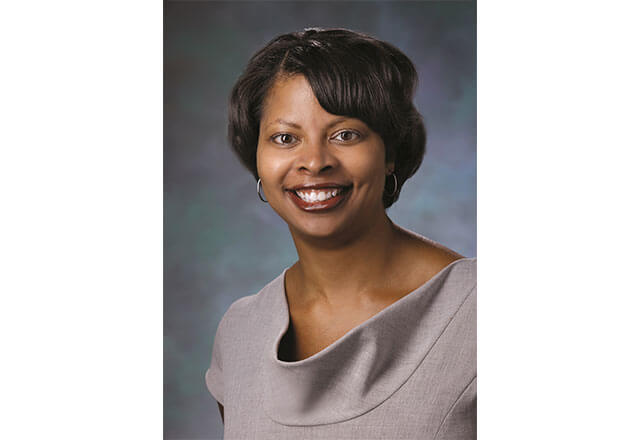A Legacy Gift Honors a Life Well Lived

Fred Leader
After being diagnosed as legally blind at the Wilmer Eye Institute in early childhood, Fred Leader lived an adventurous life in his 53 years. In grade school, Fred — the second child in a family that includes older brother Michael and younger siblings Jane and David — delivered eggs to neighbors and built ham radios with the help of Jane and David, who acted as his guides and readers. In 1968, Fred, 19, and David, 11, took a three-week hiking and camping trip with Fred’s donkey, Josie. Four years later, they took a seven-week voyage from Seattle to Pennsylvania on a tandem bike, which Fred had custom built in England.
“These weren’t my ideas,” says David, jokingly adding that he probably would have rather been on the couch watching The Three Stooges. “This was all Fred. He was always very active and independent. We all have stories about things he drafted us to do with him.”
Following his death in 2003, Fred left a six-figure bequest to Wilmer. This year, David, an executor of his brother’s trust along with Fred’s wife, Anne Gardner Leader, who died in 2023, is fulfilling his brother’s primary philanthropic wish of supporting the Wilmer Eye Institute: This gift will be used to create two endowments in the name of the “Fred M. Leader Family.” The first endowment will establish a professorship in the Retina Division, while the second will support a fellowship in pediatric ophthalmology.
“Fred knew of Wilmer’s reputation of excellence in medical care and research for the blind,” says Michael, who, along with his brother David, is a president and CEO of a family business in the retirement community industry in Pennsylvania. “He thought Wilmer would make a substantial contribution in advancing this care.”
While Fred was treated by specialists in retina, pediatric ophthalmology and low vision at Wilmer throughout his childhood, it is Fred’s initial diagnosis that his siblings remember most. At Wilmer, the family learned that Fred was blind due to a defect with his retinas. This was in the mid-1950s, when George Leader, Fred’s father, was governor of Pennsylvania (1955–1959) and had access to any medical institution in the family’s home state.

Adrienne Scott
Fred went on to amass many accomplishments. He attended public schools, with his mother reading the textbooks to him in the evenings. At Swarthmore College, he used braille and audio recordings to study for his math and economics classes. As a young adult, Fred — who would spend several years as a board member with the National Federation of the Blind — participated in programs that taught him how to ride a bus, count money, use a cane and even ski with a buddy. In 1971, he began his career with the Department of the Navy, where he worked as a systems analyst and computer programmer, using a machine that converted 80-column punch cards into braille. For 23 years, Fred and Anne also cared for goats and cattle, and grew Christmas trees on their 100-acre Pennsylvania farm.
“We couldn’t be happier to honor a life well lived by supporting Wilmer as Fred’s legacy,” says David. Adrienne Scott, M.D., clinical director of the Wilmer Eye Institute in Bel Air and an expert in retinal diseases, is the recipient of the Fred M. Leader Family Retina Professorship. Tejal Magan, M.D., an ophthalmologist from London, is the first recipient of the pediatric fellowship.
Scott says: “As I learn about Mr. Leader’s life, I recognize that Mr. Leader was incredibly resilient and did not let his blindness stand in the way of his pursuing his passions. This support will mean a great deal to my sickle cell retinopathy research program. It will allow my team to continue our work in understanding how sickle cell affects the retinal circulation and to research ways to protect vision health in patients with sickle cell disease.”
